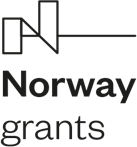Presentation of market research findings on citizens’ awareness of and attitudes towards judicial e-services
On the occasion of the presentation of market research findings on citizens’ awareness of and attitudes towards judicial e-services under the project “Reconstruction of Split Municipal Court building and promotion of e-services”, two conferences were held on 25 October 2021, in Split and Zagreb.
The abovementioned project is implemented under the Justice and Home Affairs Programme within the framework of the Norwegian Financial Mechanism 2014-2021. The project is managed by the Ministry of Justice and Public Administration with the support of the Norwegian Court Administration as the Donor Programme Partner and the Council of Europe as the International Partner Organisation. It comprises three components: reconstruction of the Split Municipal Court building, promotion of e-services of the judiciary and secondment of judges to the European Court of Human Rights.
The third component of the project was presented during the conference in Zagreb, where Ms Daniela Pivčević, a judge from the Municipal Court in Split, who had been on a one-year secondment in Strasbourg, presented her experience of working on the cases of the European Court of Human Rights.
Findings of the market research on citizens’ awareness of and attitudes towards judicial e-services, conducted under the project component Promotion of e-services of the judiciary were presented in Split.
The participants were welcomed by State Secretary at the Ministry of Justice and Public Administration Josip Salapić and Mayor of Split Ivica Puljak. Civil servants of the Ministry of Justice and Public Administration presented the overall project and the research findings.
The market research is part of the project activity focused on promoting judicial e-services i.e. on the analysis of the use of judicial e-services and developing recommendation for their improvement. The research took 44 days and was conducted on a representative sample of 1000 citizens of Croatia in order to identify the preferred channels of communication with state authorities and service providers as well as to determine the level of citizens’ awareness and use of judicial e-services.
The research was divided into a quantitative (survey) and qualitative part (two focus groups).
The analysis of the research findings showed that the respondents rated the existing communication channels with an average grade of 3.68, and 50% of them felt that finding information was easy or fairly easy. With regard to the preferred communication channels, most respondents opted for email (83.9%), then regular mail (12.7%), and a small portion would prefer to communicate by SMS (11.9%).
Furthermore, 55% of respondents were using judicial e-services, and the result of this is that almost half of them no longer requested physical issue of documents. Other respondents were not using judicial e-services, either because they hadn’t required them (73.7%) or because they hadn’t been aware of their existence (34%).
According to the respondents, the advantages of e-services are clarity, speed and availability of a great amount of data, and the highest rated e-service was the Certificate of no criminal proceedings (4.19), while the lowest rated service was e-Criminal Record (3.56). The respondents were mostly using a PC or a laptop to access the e-services, since access via smartphones was often complicated due to frequent authentications and CAPTCHAS which are difficult to recognise on a mobile screen.
The biggest deficiency of judicial e-services is that different interfaces, pages, designs and search engines of individual e-services pose a problem for users as they have to learn to use each e-service separately.
The respondents made some suggestions for new e-services such as e-Notary, e-Attorney, Declaration of no criminal proceedings in public procurement processes, Certificate of no misdemeanour proceedings for employment abroad, and they suggested a single sign-on for all judicial e-services.
The total value of the project “Reconstruction of Split Municipal Court building and promotion of e-services” is HRK 74,625,000.00, and its main objective is to raise the efficiency and effectiveness of the justice system.
For more information on the Norwegian Financial Mechanism: eeagrants.hr.

